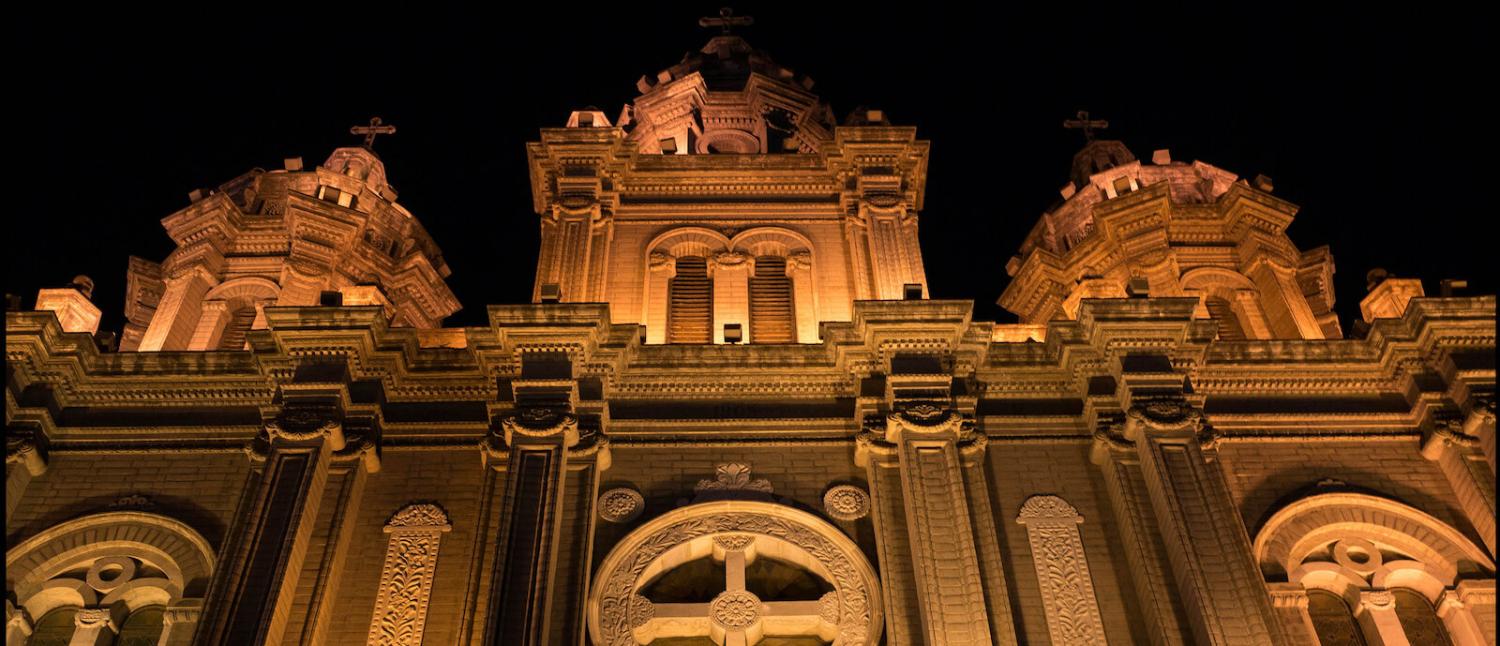Speaking at New York’s Asia Society Policy on 5 December, former Australian prime minister Kevin Rudd contended that religious freedom in China is “much better now than it was before.” A storm of indignant posts spread on social media, voicing displeasure and disagreement.
If, as Rudd argued, the case of the ethnoreligious suppression of Uyghur Muslims is considered separately, one can actually see the logic of his argument: unlike in past decades, today millions of Chinese can worship openly in government-approved religious institutions. And the number of religious followers in China is increasing fast.
What authorities demand from religious groups is conformity, not adaptation.
But the situation for followers of the five officially-recognised religions in the People’s Republic of China can be described as improved only because the government has brought most of China’s religious ecosystem under its organisational and ideological control. And Beijing is taking vigorous action against those groups it considers deviant or dangerous. Only when people worship within state-sanctioned assemblies and spaces, can they do it without fear of consequences.
However, Rudd seems not to have distinguished between freedom of worship and religious freedom. Freedom of religion – the freedom to believe and practice without government interference and the threat of violence – is more than mere freedom of worship. A look into the dynamics of the Chinese Communist Party’s (CCP) religious policy may help with parsing Rudd’s statement.
In imperial China, the state encouraged popular worship of those deities that promoted law-abiding conduct among the people. Worship of deities with a potential for fostering political unrest was sternly prohibited. The Emperor – whose titles included “Son of Heaven” – demanded that officially permitted faiths to submit to his authority, asserting the ultimate jurisdiction of politics in religious matters.
After their accession to power in 1949, the Chinese Communists combined their predecessors’ traditional distrustful attitude towards religious groups with the negative Marxist view of religion. Patriotism and allegiance to Socialism bind believers as well as non-believers. Freedoms granted to religious believers remains conditional on obedience of the law, but also on submission to the policies and decisions of the government.
The CCP’s religious policy is bifocal, with engagement and containment as its two lines of action. Engagement aims at turning religious groups into social forces that the government can use for its political objectives. Practically, engagement is the systematic subjection of religious organisations to the political guidance of the Party. The idea that religion can be useful if it is brought under the guidance of the CCP reflects the thinking of the most pragmatic Party circles. In other words, after undergoing nationalisation and political neutering, the “opiate of the masses” can solidify Party rule.
But more essential from Beijing’s viewpoint is the containment of religion. The containment policy of the Chinese government is founded upon three concepts: adaptation, legislation, and independence.
The idea of the adaptation of religions to the socio-political system has been constantly reaffirmed in Party documents. Although this process has often been presented as mutual, the Party sees it as a one-way process. To adapt to the socialist society, religion must be “flexible” to the point of changing or bending their doctrines in order to satisfy political criteria set by the government. In practice, what authorities demand from religious groups is conformity, not adaptation.
Law is the main instrument for enforcing “adaptation”. The CCP uses legislative and repressive means to restrict the scope of religious activities. Just like the Emperors in the past centuries, the Communist government decides which religions are permitted and which are not. Similarly, it claims the exclusive right to define through legislation what religious activities are “normal”, and outlaw segments of state-recognised religions which resist government supervision. In addition, the civil authorities put a cordon sanitaire around religious groups in order to cut them off from parts of the public domain over which the state wants to exert its control: education, marriage, demographic policy, and social morality.
The third leg of the containment tripod is the idea of “independence”: meaning that religious organisation must recognise no authority higher than the government. Independence has been a traditional leitmotif of the CCP’s religious policy since Mao’s time. But today there are new elements that, according to the political leadership, require renewed efforts to curb exogenous religious ideas and limit the influence of overseas-based religious organisations on their adherents in China.
China’s borders have become more porous not only to foreign investments but also to cultural influxes from the rest of the world, including religion. The increased scale and intensity of cultural exchange with the outside world is favouring the penetration of new religious ideas and contacts between believers in China and their co-religionists in other countries. The possibility of coordination between Chinese religious groups and their foreign counterparts is seen by the government as augmenting the risk of Chinese believers being directed by foreign entities rather than being “guided” to pursue the socio-political agenda of the CCP.
For the Chinese government, religious freedom actually means subjection to state control. The dogma of CCP religious policy can be expressed as “all for the state, nothing outside the state; nothing against the state”. Within this statolatric paradigm, religion becomes a state-controlled franchise and religious freedom is made the ghost of itself, being reduced to a government-directed liturgy. Rudd’s “better than before” indeed has Chinese characteristics.

